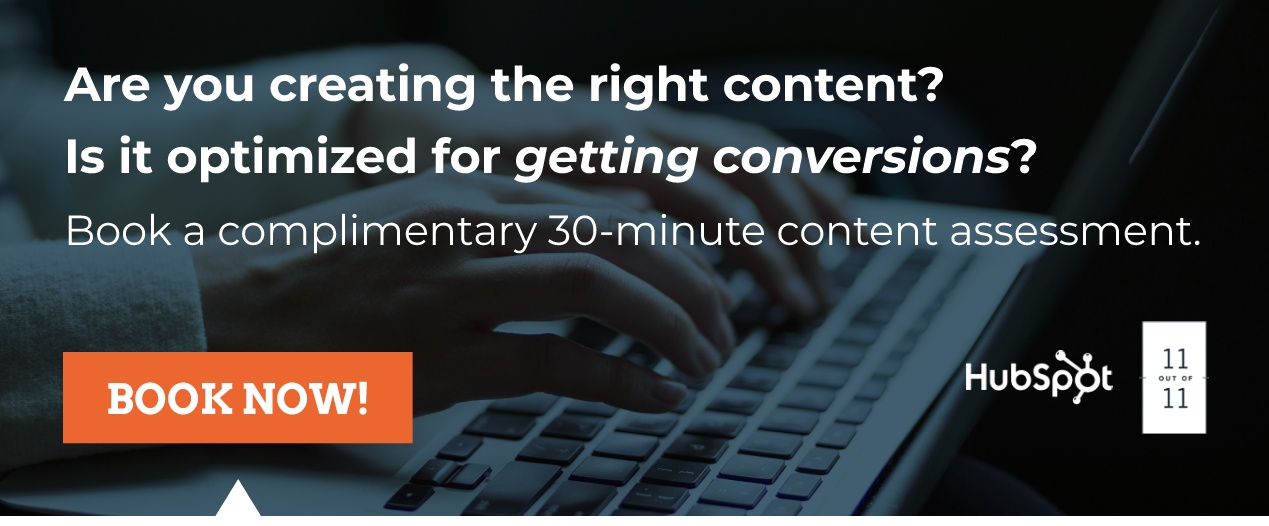What is effective content writing? And how do marketers produce it consistently for the best results?
For your marketing content to help your business get noticed, it likely has all of these attributes:
- It informs and entertains your target audiences with topics that they care about.
- It’s well-researched.
- It uses creative ways to engage your customers and prospects.
- It’s published based on a well-planned editorial schedule.
- It’s SEO-friendly…and we mean that it generates positive results by leveraging search engine ranking to drive conversions.
If you can check off all these things for your content writing, that’s great. But if you’re unsure (especially about that last one), we’ll share some ideas you can incorporate into your content writing strategy that’ll give you better results.
How to Write Content That Drives Conversions
Communicate your keyword strategy in a content brief.
Marketers start with researching keywords to find relevant ones that can become the focus of each article. Your primary or target keywords should be things that people are often searching for and can give your brand the best chance to score a desirable search engine ranking.
Supporting your primary keywords with semantically related keywords – words or phrases that are related conceptually – helps search engines understand the focus of each piece of content and its search intent. This will result in more relevant and accurate suggestions for people on search engine results pages (SERPs).
Once you have your keywords, it's a good idea to communicate your overall goals for content writing in a content brief. This way, the writer will get a better understanding of what their writing should accomplish for each piece of content. The content brief should include:
- Important keywords, both primary and secondary
- A topic outline
- A word count for the article
- Relevant resource links
- The target audience
Optimize headlines for your audience and for search engines.
Effective headlines not only include a compelling reader benefit, but also your primary keyword.
Marketing research finds that 71% of the low-scoring blog posts don’t include the target keyword in their title. So make search engines happier by including that keyword.
In addition, a great headline will grab your reader’s attention:
- With clear, concise, easy-to-understand language.
- With specific information that gives clues about what to expect when reading the content.
- With actionable insights and takeaways after clicking on the content.
Provide the right amount of information in your content.
Search engines tend to appreciate content that’s comprehensive and gives people a lot of information about a topic. Why? Because you’re probably answering every possible question they may be searching for on that topic.
Industry insiders often use a word count of 800-1,000 words for content to be considered high converting. However, content length should make sense for your target audience and align with your content goals. In general, your readers shouldn’t have to read or review any other content to get the information they seek.
You can check for content robustness by:
- Researching the most popular questions on the key topics and subtopics related to your keyword.
- Analyzing the title structure of the top 10 articles that rank for your keywords.
- Using this intelligence to structure your content.
You want to aim to deliver as much audience value as you can for each piece of content. It’s also important for in-depth content to stay focused on the main topic, rather than meandering off onto sub-topics.
If you have a topic idea that could branch off in different ways, consider breaking up the idea into different content pieces that can still deliver the right information for each topic. It will not only benefit your audience, but it will reinforce your SEO strategy.
Use links to create a better overall experience.
Adding relevant links to your content not only pleases your audience (they will discover more of your content on your website), but it will boost SEO (it helps bots to better index your site). Plus, it helps solidify your authority as a subject matter expert and builds trust with both your audience and search engines.
Make sure the readability level of your content can maintain SEO-friendliness.
Pay attention to how your content engages your audience. Make sure it doesn’t seem too complex or too simple.
Readability level is affected by:
- How well you know your target audiences and choose relevant topics for them.
- The length and complexity of your sentences, paragraphs, and words. Shorter is more effective, even with word selection. Try “use” instead of “utilize,” that sort of thing.
- Your storytelling skills.
- How your content looks on the page. Highlight shorter sentences and paragraphs with headings, subheads, bullet and numbered lists, as well as visuals such as photos, videos, illustrations, charts, or graphs.
- The voice and tone of your brand, which influences the way your business is perceived.
Keep conversions top of mind by writing compelling CTAs.
Knowing what your audience likes coupled with a persuasive writing style is a strategy that will always be more effective when capped off by a purposeful call-to-action (CTA). CTAs tell your audience what you want them to do.
When CTAs are also well-designed, your target audience will be more likely to take action. That’s why instructive CTAs that use verbs in short phrases like download now, talk to, sign up, and others are so dynamic: they give clear, concise directions to help people just do it. Placing dynamic CTAs so they stand out can also encourage conversions. Use a different color font, a banner, or a button to highlight the directive.
11outof11 Knows Search Engine Optimization
When you want your content writing to drive conversions in the best possible way, connect with 11outof11. Request a complimentary call with an 11outof11 expert. Contact us to learn more.







.png)






